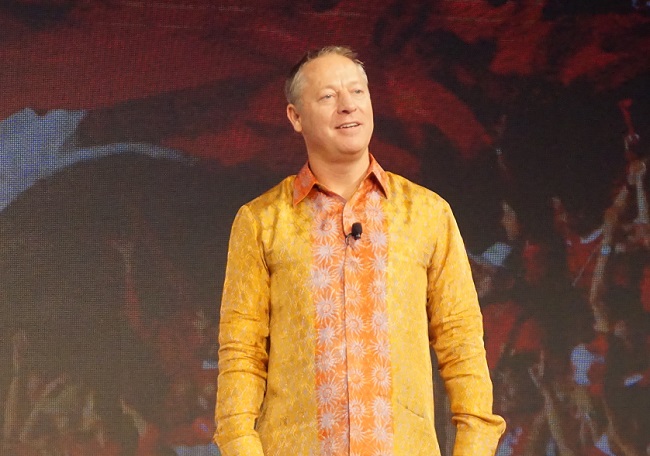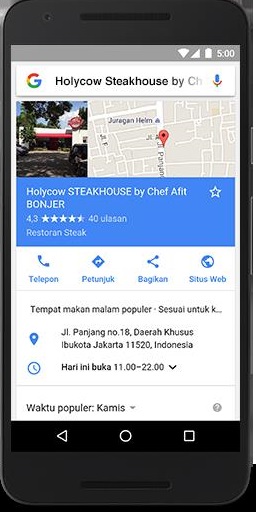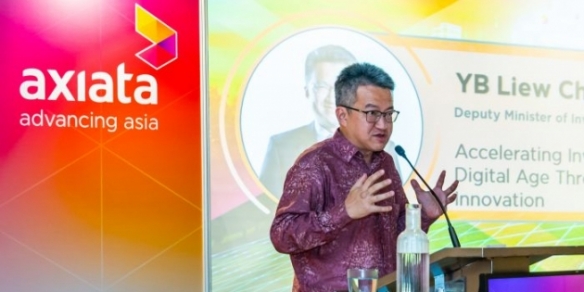Google says committed to building a ‘meaningful Internet’ in Indonesia
By Masyitha Baziad August 10, 2016
- Plans to get more SMBs online, train 100,000 developers
- Will continue Launchpad accelerator programme for startups

INTERNET giant Google Inc’s journey in Indonesia has not always been smooth. For example, earlier this year, the Indonesian Government told Google and other foreign Internet companies that they needed to set up permanent business establishments in the country and eventually pay taxes.
New legislation was supposed to pave the way for that, but the Government has gone silent on the issue since.
However, it must have been a wake-up call: The US company recently held Google for Indonesia, an event meant to showcase its commitment to helping the country and its people develop, and that it wasn’t seen as merely trying to tap into a market of 250 million people.
“Today is an exciting time for the Internet in Indonesia, as the country has hit 100 million Internet users and is currently the fifth biggest Internet market in the world,” said Google Indonesia managing director Tony Keusgen (pic above).
“Indonesia is set to become the crucial digital economy in this region, and is predicted to become a US$46-billion e-commerce market by 2025,” he added, citing a joint study done with Singapore’s Temasek Holdings.
In its Internet and Mobile Users Updated Estimates for 2015 report, research firm eMarketer said that the number of Internet users in Indonesia was 93.4 million in 2015, and is expected to hit 102.8 million by the end of this year.
Companies which understand the needs of the Indonesian people, and which can quickly grasp local opportunities and solve real challenges, would be the ones that will drive Indonesia’s digital economy future, Keusgen declared.
“From e-commerce players and small and medium businesses (SMBs) to content creators, the digital economy is thriving here in Indonesia,” he said.
“And local startups are the ones that will bring the best of the Internet to the people,” he added.
Keusgen said that Google Indonesia was committed to training 100,000 developers to support the Government’s target of seeing 1,000 Indonesian startups being created by 2020.
He cited the Muslim e-commerce platform Hijup and flight-booking site Traveloka as examples of how Google can help local startups reach global customers.
“Traveloka has been working with us to continue perfecting its consumer experience, while Hijup partners with Google to have tutorial content on YouTube and slowly expand its market globally,” he said.
“We are proud to be part of these homegrown startups going global, and we are committed to helping more local startups,” added.
In 2014, Google Indonesia launched Gapura, a programme that Keusgen claimed has helped 7,000 SMBs in major cities create a better online presence.
Through the business verification platform Google Bisnisku, the company has helped “hundreds of thousands” SMBs across Indonesia get online this year alone, he also claimed.
Excel in mobile, go local

Indonesia is a country that Google takes “very, very, very seriously,” said its vice president of product management Caesar Sengupta (pic above).
There are three reasons for this: The potential size of the market; its mobile-users advantage; and local opportunities.
In terms of mobile, “smartphones are the great equaliser, giving millions of Indonesians access to the Internet,” he said.
He said that a “significant number” of Google’s next one billion users will come from Indonesia, noting that many of the first-time Internet users in the country are mobile-first, and in some cases, mobile-only.
 So the country makes a good testbed for Google to develop its mobile chops, as mobile will be the “future of the Internet,” he argued.
So the country makes a good testbed for Google to develop its mobile chops, as mobile will be the “future of the Internet,” he argued.
“If we succeed here, it is likely that we will succeed in any other market in the world,” he added.
To see this through, Google will focus on three areas: Access, platforms, and products.
“Access to the Internet is fundamental, and we will keep engaging and improving our partnerships with telco providers to bring affordable connectivity to the people,” said Sengupta.
“We have also embarked on Project Loon, which can provide connectivity even to the most rural areas in the countries,” he added.
On the platform side, he said Google will keep ensuring that people can easily build anything on top of its platform, and make it available not only to the Android operating system (OS), but also to other OSes.
As for products, Google’s vision is to eventually make Search and Maps available regardless of the quality of the connectivity in Indonesia.
This includes the ‘Lite Mode’ on Google Search that can allow people to search even on a paltry 2G connection; adding Go-Jek and Grab to Google Maps; and a localised Google Assistant that will be launched by the end of the year.
Related Stories:
Project Loon: Indonesian ISPs want in on the action
Ode to the desktop, or why mobile-first sucks
Six Indonesians startups in Batch 2 of Google’s Launchpad
More than 90% of users in Indonesia access the Net via smartphones: GfK
Indonesia’s vision: 1,000 startups by 2020
For more technology news and the latest updates, follow us on Twitter, LinkedIn or Like us on Facebook.


